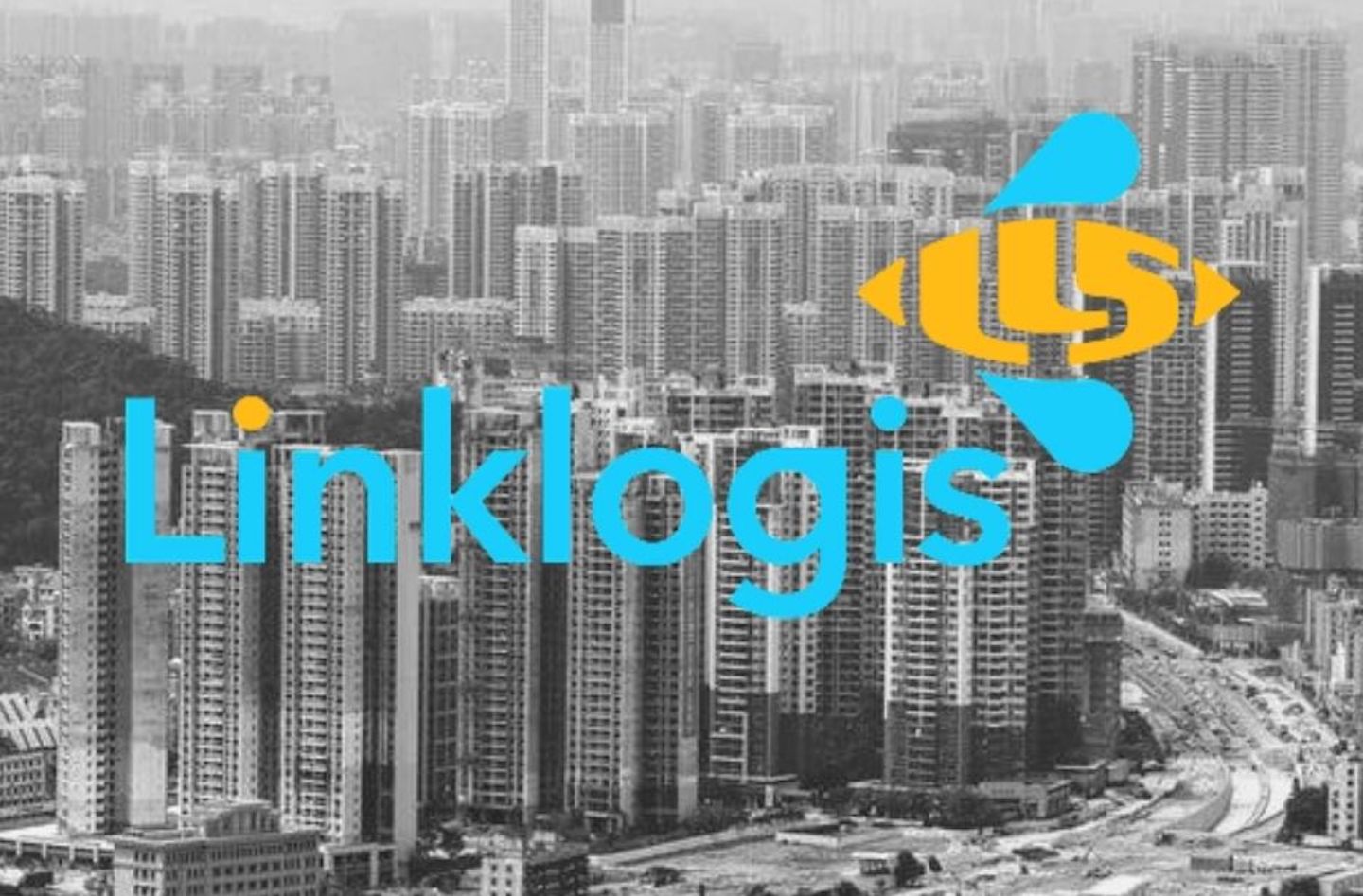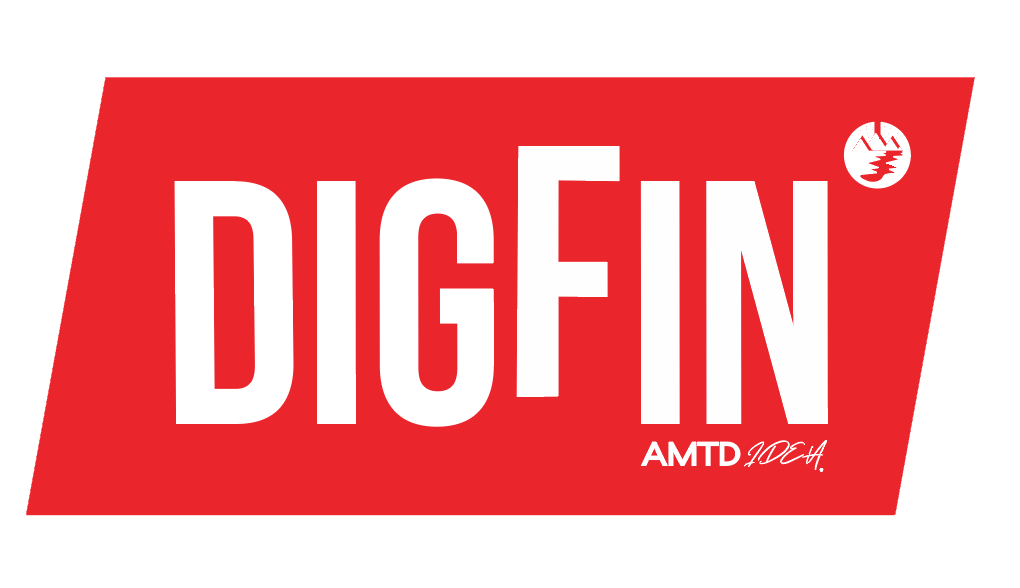Capital Markets
Linklogis’s fintech credentials under attack
Short sellers take aim at Linklogis, a recently listed tradetech at the heart of Asian financial networks.
Published
4 years agoon

Linklogis, a Hong Kong-listed, mainland China-based supply-chain fintech, has come under fire from a shadowy short-seller group.
Linklogis has relationships that extend to Tencent, Standard Chartered Bank, and a licensed virtual bank in Singapore. The company provides a cloud-based Software-as-a-Service platform for multinationals to create financial solutions for their suppliers and assets for institutional investors.
Do these allegations have merit? And if so, how extensive would be the fallout?
The attack comes at a delicate time. In the U.K., a supposed supply-chain fintech, Greensill Capital, collapsed, revealing its hyped digital prowess to be hot air and illegal inside dealing. That scandal already has supply-chain fintech on notice.
It also comes at a time when China is cracking down on technology companies for problems ranging from predatory lending to misuse of consumer data. Beijing is making it difficult for Chinese tech firms to list in the US. Could problems at a prominent tradetech attract more regulatory ire – in the mainland as well as in Hong Kong?
Moreover: Chinese developers such as Evergrande (the largest issuer of US dollar junk bonds in Asia) are increasingly under pressure of defaults. How exposed are China’s institutional buyers of Linklogis’s assets to the real-estate industry?
The third inconvenient aspect of the allegations is that Linklogis is a shareholder in GLL Bank, one of only two digital wholesale banks licensed last year by Monetary Authority of Singapore.
The future of supply-chain finance fintech. Volatility in Chinese real estate. Hong Kong listings. Singapore virtual banks. All could be impacted should the allegations against Linklogis be substantiated. The outcome will depend on the robustness of the short seller’s allegations and Linklogis’s willingness to be transparent in defending against them.
From startup to listco
Until now, Linklogis has been hailed as a leading fintech. Linklogis’ cloud-native, artificial-intelligence based solutions were designed to optimize the payment cycle of supply-chain transactions and digitalize the entire workflow of supply chain finance. It accounted for 20.5 percent of market share for supply-chain financial transactions in China in 2020.
The company was founded in 2016 as Shenzhen Qianhailian Yirong Financial Services. It listed in Hong Kong in April this year, raising over $1 billion and achieving a valuation of $5.5 billion.
- Read more:
- Ant may be more relevant to China’s banks than ever
- Five takeaways from Singapore’s VB picks
- What “nexus” means for Standard Chartered
The deal was a huge success for the company and for Hong Kong Exchanges, in light of earlier flops and the cancelled IPO of Ant Group. HKEX is eager to attract tech listings, especially now that many Chinese companies are being pressured to abandon listings in the U.S. Yet in the runup to the IPO, China’s leading financial publication, Caixin, did raise the question of whether Logislink’s valuation was helped by its throwing around buzzwords such as “A.I.”, “blockchain” and “cloud”.
According to Linklogis’s website, investors in the SME invoices and receivables available on the platform enjoy annualized returns of 4 percent or more. In addition, Linklogis introduced DigiPo, a “revolutionary” blockchain product to connect funders, buyers, and multi-tier suppliers.
In 2019, the startup completed a joint financing transaction for a local tech company and its upstream suppliers in collaboration with Standard Chartered Bank. Using Linklogis’s blockchain, the partners provided the client with transparency into its entire supply chain, and cheaper credit for its suppliers.
In January 2020, Standard Chartered made a strategic investment in the company, bringing Linklogis’s total pre-IPO funding to $265 million, according to Crunchbase.
The relationship gave Standard Chartered its first access to China’s domestic supply-chain finance and blockchain finance market, and it gave Linklogis its first international bank partner.
A spokesperson at Standard Chartered did not respond to DigFin’s request for comment. A spokesperson at Tencent did not respond to DigFin’s request for comment.
The allegations
The short seller is called Valiant Varriors (VV). It bills itself as “a group of activist investors on the lookout for companies that are priced incorrectly due to the lack of transparency in publicly-listed stocks around the world”.
It adds:
“All our efforts is [sic] in the valiant attempt to help global stock exchanges become more investor friendly.” Which is fine – if the allegations are substantiated.
VV published a paper on July 20 that makes several accusations; the full paper is here. The charges lack hard evidence. VV alleges Linklogis has:
- Lied about overexposure to real estate
- Exceeded regulatory limits for commercial factoring (essentially, packaging SME invoices and other receipts into asset-backed securities, and selling them to investors – passing on the risks, just like the US subprime loans in the 2000s)
- Engaged in risky, opaque third-party transactions (which reminds DigFin of Greensill)
- Overstated revenues
- Evaded tax
- Exaggerated technology capabilities
Says VV of Linklogis’s IPO: “It achieved these lofty valuations by promising investors a high-technology way to solve issues in supply chain financing – a sector that has been plagued with paperwork, bureaucracy and red-tape. But beneath the veneer of legitimacy, Linklogis is nothing but a glorified mortgage broker, relying on cheap human labor instead of A.I. to do the work.”
The VV report prompted HKEX to halt trading in Linklogis shares. This led the company to publish a statement with the exchange refuting the allegations, and HKEX resumed trading on July 22. The stock price on the morning of the report’s release was HK$12.50. It fell as low as HK$9.88 per share, but since trading resumed it rebounded, closing on the 22nd at HK$12.12.
In its July 20 statement published on the Hong Kong Exchange, Linklogis said VV’s allegations are “groundless” and that it is taking legal action against VV.
How fintechy is it?
One analyst who has been following the company is skeptical about many of VV’s charges.
Sumeet Singh of Aequitas Research, who publishes on Smartkarma, says nothing in VV’s report makes him think the company is a fraud. Singh’s own response debunks VV’s claims regarding overstating revenues, overleveraged factoring, or tax fraud.
The main concerns, Singh says, are around Linklogis’s tech capabilities and its exposure to real estate.
On the former, he notes that the company’s prospectus made clear that the management team, led by former banker Charles Song Qun, has no tech background. The CTO, Zhong Songram, has mostly worked at banks and is unlikely to be familiar with cutting-edge tech, Singh says.
This is where Tencent was supposed to come in. Song worked at the company as a strategy advisor between banking jobs. Tencent was lead investor in Linklogis’s A Series funding round, in 2016. Two years later, Linklogis and Tencent entered an agreement to collaborate on supply-chain finance tech solutions and application of blockchain. Before the 2021 IPO, Tencent owned nearly 19 percent of the startup.
Singh says some of the problems VV cites regarding the lack of adoption of the supply-chain blockchain service are normal challenges for any startup seeking market adoption. But he adds that VV makes a valid point that Linklogis should clarify.
Oshadhi Kumarasiri, also publishing on Smartkarma, says VV may not have hard facts to accuse Linklogis is clear fraud. But the damaging charge is that the company is not a tech-enabled cloud SaaS platform.
Kumarasiri writes: “Linklogis fooled many investors, including the biggest investment managers and technology companies…The Chinese government is currently on high alert about these issues in overseas listings and it is possible that Linklogis might result in an extension of crackdowns to Hong Kong and the domestic exchanges.”
It’s hard to tell how Beijing’s regulators might respond to this, but if Linklogis is engaging in the kind of securitization as VV alleges, this would put it in the same camp as Ant Group’s platform-based lending to SMEs, in which Ant took a cut of business while handing off all the risk to third-party commercial lenders. That in turn has echoes in China’s disastrous experience with P2P marketplaces.
Linklogis’s statement to HKEX says technology innovation “is at the heart of the Group’s business”, including developments in blockchain, big data, artificial intelligence and cloud computing. It says its many patent applications are still in process. In particular, it defended its technology in optical character recognition (OCR). It employs 30 engineers in the field of blockchain technologies development, it says, and that in the first half of 2021 the group acquired over 20 new customers using its solution. Overall, it says 63 percent of its workforce consists of tech-related functions.
Chinese real estate
Finally, there’s the issue of real-estate exposure. VV alleges real estate makes up 80 percent of the assets being bundled and securitized on the platform. Singh agrees that Linklogis hasn’t clarified its exposures regarding anchor clients using its platform for factoring purposes, but that it has identified real estate developers as a major category.
The bottom line is that he can’t tell how extensive Linklogis depends on real-estate companies for business. He writes:
“While the company doesn’t have direct balance sheet exposure, its overdependence on real estate sector would be a concern for sure. But in addition to that it would throw the whole selling point of working with various industries to streamline their supply chain financing out of the window as with 80 percent exposure to real estate and infra it’s definitely not doing much with the multinationals that it has quoted as being clients. Therefore, this is the main point that the company needs to clarify, in our view.”
Analyst Kumarasiri writes: “Given the current state of the real estate market, it is difficult to rule out the risk of default and possible default of a key customer in the real estate business before the risk is offloaded to investors as ABS could mean significant financial implications.”
Linklogis’s statement via HKEX includes this rebuttal:
“The [VV report] misleadingly alleged that 80 percent of the transaction volume enabled by the company’s solutions are related to the real estate sector, by citing data from public sources. Actually, most of the [asset-backed securities or notes] are sold as private placements in China and relevant information on such offerings…are not accurately and completely recorded in public databases.”
Therefore, VV can’t know the composition of the company’s securitization deals, nor those transactions via the company’s private cloud-based platforms.
Linklogis says about 45 percent of the total volume of supply-chain assets processed by its technoloogy solution for the first half of 2021 was related to customers in the real-estate sector. Given the opacity that the company itself identified, however, it’s not clear how equity investors, regulators, or anyone else can verify this assertion.
Digital banking
In December 2020, MAS awarded two digital wholesale bank licenses to Ant Group and a consortium comprising Greeland Financial Holdings Group, Beijing Cooperative Equity Investment Fund Management, and Linklogis.
Linklogis has a 20 percent ownership in the company, which is preparing to launch its bank, GLL, in early 2022. GLL intends to use Linklogis solutions.
Digital banks around the world have attracted multi-billion dollar valuations. But if Linklogis runs into trouble, this represents a second headache for MAS, which insists on its virtual banks showing profitability or at least shrinking losses within five years of launch.
MAS awarded Ant just after Beijing scuppered Ant’s $35 billion IPO in Hong Kong and Shanghai. Since then, the news for Ant has grown worse, as it has been forced to dramatically restructure. Whether this will have any impact on its Singapore bank is unknown.
But now the second wholesale bank also has a question mark against it.
No one doubts Ant’s proven technical capabilities. VV is now challenging those of Linklogis. If these allegations turn out to have merit, then what should MAS now expect from GLL’s tech stack? How ready is GLL to successfully enter new markets or become profitable? What questions did MAS ask the company when it conducted due diligence during the licensing process?
A MAS spokesperson said its assessment of digital-bank applicants “took into consideration applicants’ understanding of key risks in a banking business, and strength of their regulatory compliance and risk management plans. MAS also considered the reputation, track record, finanical strength and commitmtent of the applicants’ shareholders.”
MAS also said it is aware of comments made against Linklogis by Valiant Varriors, and Linklogis’s clarification statement through HKEX. “MAS will continue to monitor developments on this issue, and follow up with the digital wholesale bank applicant as appropriate,” the spokesperson said.
DigFin’s email to Linklogis seeking comment and messages to its senior staff in Hong Kong were not answered.
Lessons from Greensill
A lawyer in Hong Kong, requesting anonymity, told DigFin the VV allegations suggest a Greensill-like situation, if proven: “Taking good old-fashioned factoring and calling it a fintech. Then not doing supply-chain finance and doing overconcentrated unsecured lending.”
In Greensill’s case, those loans were going to Liberty Steel, nominally the anchor multinational providing credit to its suppliers. But it turns out Liberty’s owner, Sanjeev Gupta, had ties to Greensill and was in fact providing the capital, creating a spinning wheel of credit that looked like it was generating high returns – thanks to the magic of technology – when in fact it was a house of cards.
The Greensill case has had massive impact. It has ensnared a former British prime minister, David Cameron, who was shilling for Greensill and who owns a substantial stake. Britain’s Serious Fraud Office is investigating Sanjeev Gupta’s entire business empire for alleged money laundering. Liberty Steel is seeking a government bailout; 5,000 employees could lose their jobs.
Perhaps worst of all, Credit Suisse’s investment bankers in its trade finance division had made $10 billion in loans to Gupta, structured out of the firm’s asset-management unit, despite internal compliance red flags.
Credit Suisse is now on the hook, promising to repay over $4 billion to its asset-management clients – which include the cream of Asian tycoons and Arab oil sheiks, according to a banker familiar with the situation. He says those clients are unlikely to ever work with Credit Suisse again. This disaster was then followed by massive losses stemming from the collapse of New York family office Archegos – an unrelated event but one that exposes Wall Street’s reckless aptitude for risks. Credit Suisse is now subject to rumors as to its fate.
All of which is to say that in the interconnected world of finance, if a problem emerges at an obscure but important company, the fallout is unpredictable but potentially very damaging. Other recent debacles in Singapore such as the collapse of fraudulent oil trader Hin Leong suggest that New York isn’t the only place where financial calamities can strike.
The benefits of tradetech are real. Digitalizing trade and supply-chain finance brings down costs, makes assets more readily available, gives companies control over their working capital, and drives innovation.
There are plenty of digital platforms that are providing safe assets with minimal defaults, even during last year’s worst COVID-related volatility.
The question, as ever, isn’t the tech: it’s the business model.
As one fintech lawyer told DigFin: “The underlying principles of risk and structure in trade finance do not change due to technology alone. There is no substitute for really understanding the underlying trade flow and receivable assets and where the operational risk sits.”
It is possible that VV’s accusations against Linklogis will turn out to be all smoke and no fire. Analysts complain that Linklogis has been difficult to value because the firm’s management have been opaque, and its business is complex, involving multiple asset-backed securities structures and unorthodox means of categorizing its revenues.
This opacity may mean VV’s allegations are unfounded because the short sellers don’t understand the company that well. There is also something unseemly about anonymous short sellers who might have found a legitimate business that is complicated enough to make for an easy target. The best shorts are well known figures: Jim Chanos has nothing to hide.
However, VV’s report has raised enough questions, particularly around the company’s exposure to China real estate and the nature of its tech, to concern industry practitioners that its business model is different to what Linklogis claims. The company’s clarification to HKEX has helped its stock performance, but it might be in for further scrutiny. The fastest way to end any speculation about the business is to show the relevant parties its books with regard to its corporate clientele and the underlying of its asset-backed securities products.
You may like
-


Lessons for digital banks from K Bank’s IPO drama
-


Digitizing trade finance in the post-Contour world
-


Trust Bank on track for third-anniversary breakeven
-


Singapore licenses Ethereum-based exchange
-


How StanChart is embedding itself in Asia’s e-commerce
-


Embedding fintech is key for Southeast Asia’s tech giants
The Future of Cross-Border Payments with VISA Direct
DigFin direct!

Why the RWA revolution will not be televised

Dušan Stojanović: AI in fintech is a compliance story

Has ASX learned the lessons of its DLT failure? UPDATED

InDrive Money and Fingular enter Indonesia ride hailing





